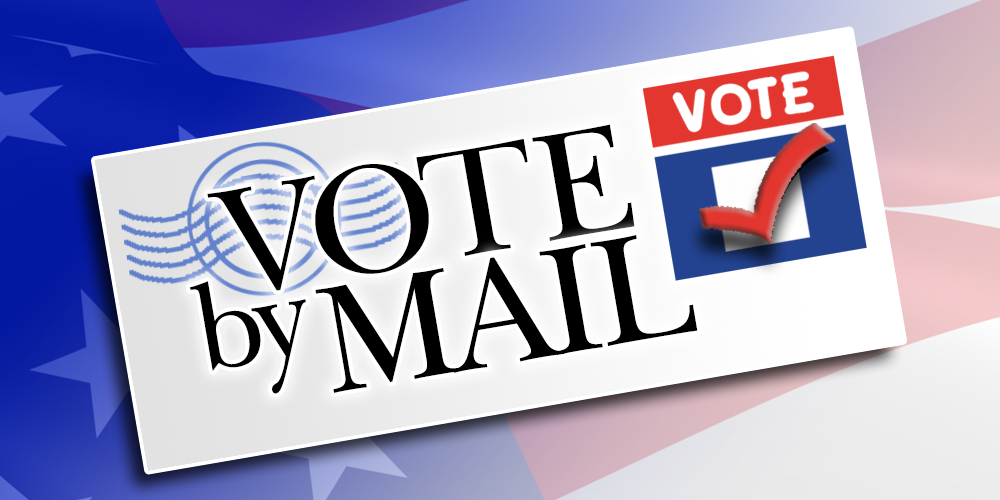Charles Butt, the billionaire owner of the San Antonio-based grocery chain H-E-B, sent a letter to the Texas Supreme Court this week, siding with Harris County on its plan to send mail ballot applications to all registered voters ahead of the November election.
In the letter, Butt argued that Harris County Clerk Chris Hollins’ plan was permissible under the Texas Election Code.
“Clerk Hollins’s efforts to make absentee ballots widely available trusts voters, protecting those who are vulnerable from unnecessary exposure in this new Covid world in which we’re living,” Butt wrote. “It’s always been my impression that the more people who vote, the stronger our democracy will be.”
[…]
“Based on our experience at H-E-B, many people, including those of all ages, are nervous about contracting the virus,” Butt wrote. “By extension, in my opinion, many would be anxious about voting in person. Clerk Hollins has reasonably given these voters a chance to guard against perilous exposure in a manner consistent with this Court’s opinion and the Election Code.”
Butt previously has weighed in on political debates, and he is a top contributor during election cycles. His campaign contributions cross party lines.
That letter was being quote-tweeted all over the place on Wednesday. One could look at this and furrow one’s brow at the intervention by a wealthy individual, one who does play a fair amount in Texas politics, in a court case like this. One could also shrug one’s shoulders and say that this looks an awful lot like an amicus brief, except it was released on Twitter instead. I lean towards the latter, and given the overheated and frankly harmful rhetoric being unleashed by Trump and Paxton and the like, I’m glad that Charles Butt decided to speak up and inject a little sanity into the discourse. Your mileage may vary. Reform Austin has more.


SCOTX ALLOWS PUBLIC TO WEIGH IN ON PENDING CASES
Kuff: It *IS* an amicus curiae submission (though not a brief), and it was efiled by Wallace B. Jefferson, the former Chief of the Court (at no cost, according to the TRAP 11 disclosure statement).
09/02/2020 Amicus Curiae Letter Received Received (instead of filed) Amicus Curiae Letter of Charles Butt submitted by Wallace Jefferson of Alexander Dubose & Jefferson LLP of Austin, Texas.
http://search.txcourts.gov/SearchMedia.aspx?MediaVersionID=c002219c-6c8e-4add-aa27-11893a7ad23b&coa=cossup&DT=BRIEFS&MediaID=847f292c-1991-4af3-b83a-7ac754f648a6
[ PDF/103 KB ]
[ PDF/34 KB ] Notice
TRAP 11 governs amicus briefs in Texas courts of appeals. It speaks to “briefs” but many amicus submissions take the form of letters. People can even submit their own letters (without attorney). When a former chief justice does so on behalf of a prominent business leader, it adds gravitas, of course.
Although the SCOTX is conservative, the Texas amicus rule is more liberal than are the federal rules and those of other jurisdictions. No motion for leave or consent of parties is required. Nor is there a deadline for submission.
For more on the subject, see: Who Files Amicus Curiae Briefs in the Texas Supreme Court? – 2020 Edition (February 27, 2020). Available at SSRN: https://ssrn.com/abstract=3545676
TEXAS RULE OF APPELLATE PROCEDURE 11 VERBATIM:
Rule 11. Amicus Curiae Briefs
An appellate clerk may receive, but not file, an
amicus curiae brief. But the court for good cause may
refuse to consider the brief and order that it be
returned. An amicus curiae brief must:
(a) comply with the briefing rules for parties;
(b) identify the person or entity on whose behalf
the brief is tendered;
(c) disclose the source of any fee paid or to be
paid for preparing the brief; and
(d) certify that copies have been served on all
parties.
Amicus letters and briefs should be addressed to the Hon. Blake Hawthorne, Clerk of the Supreme Court. They must contain the disclosure statement (funding source, if any), but a certification of word count is not required, according to the Clerk. All attorney must efile; people without attorney may do so too, but the Court has also accepted paper letters from the public by mail, which are scanned for posting on the docket.
Mailing Address:
Supreme Court of Texas
PO Box 12248
Austin, Texas 78711
Wolfgang, thank you for the clarification.